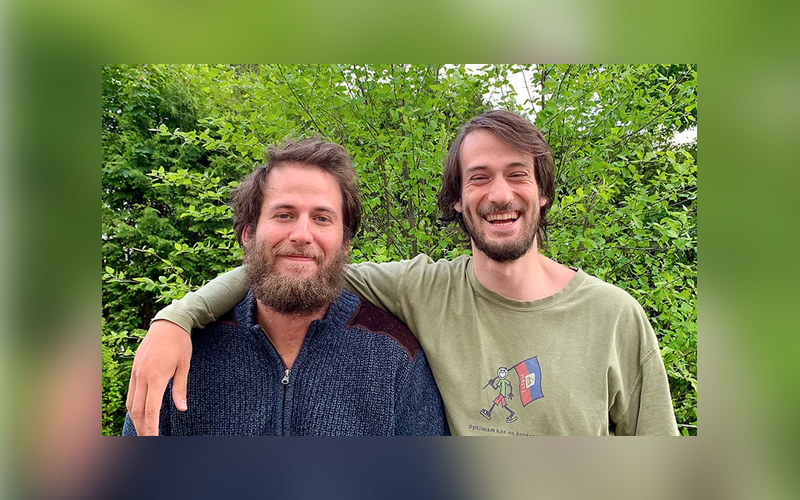Editor’s Note – Part 1 of this story appeared in the November 19 issue of The Valley Reporter. Find it online HERE
Now, Ryan and Rory have a nonprofit organization called Cultivating Connections in which the brothers urge policymakers and state representatives to pursue connection-based treatments rather than medically-assisted treatments that “solve” addiction and mental illness by pumping patients full of psychologically numbing drugs.
Drawing on the rat-in-a-cage metaphor, Ryan said, “You don’t have to put a different drug in the water. You just have to create an environment that fosters avenues for connection. That means creating connections with ourselves, with other people and with the community.”
Luckily for Ryan and Rory, they have been able to completely reinvent their daily lives in a way that cultivates the meaningful relationships they need to stay happy and clean. To start, the brothers have a podcast, also called Cultivating Connections, in which they express their most intimate thoughts and feelings and discuss how those emotions shape their present experience. “The point of the podcast is to be vulnerable,” said Ryan.
WEEKLY CONNECTION PRACTICE
Moreover, the brothers have created a weekly connection practice in which every Sunday they hike into the woods with some close friends and engage in a series of self-made connection- based rituals. While these rituals sometimes involve marijuana, no psychedelics are involved. “I haven’t used psychedelics again,” said Rory.
Every Sunday, the boys meet up and talk for about 15 minutes and then they hike to their special spot in the woods. Next, they sit in a circle and talk for a few minutes before ringing a bell to signal the start of silent time. “We sit with whatever comes up and try best to accept it and let it go,” said Ryan.
Meanwhile, the boys have their eyes open. They look at each other, gazing into one another’s eyes for up to 20 minutes. Then they ring the bell again to signal the end of the silent period and let people speak. Taking turns with a talking stick, everyone shares their thoughts until it’s time for another round of silence and eye gazing. They repeat this ritual over the course of two to three hours.
“If we really want to tackle this opioid addiction and mental health crisis, we need to establish more ways to connect,” said Ryan, who believes connection can take many different forms. “It could be a community center where people get together and take classes for free or share stories. That’s what our community is missing.”
NEW FOUND OPENNESS
The brothers’ new found openness to connection and vulnerability through rituals has forever changed their lives. Or, as Ryan said in a heartwarming Freudian slip, their one “life.”
“Seeing how our life has changed, we realized how valuable it is. Confronting those uncomfortable emotions and feeling them has provided so much more value in our life. We feel the love and gratitude of life even more than ever,” said Ryan.
Ryan recalled one day when Rory was not at the Sunday ritual, because he was in rehab with the intention of getting off methadone, the prescription opioid used to treat heroin addicts via opioid maintenance therapy. While the boys were in their ritual setting, Rory called to let them know he’d gotten off methadone, cold turkey.
“That was the most empowering moment in my life,” said Ryan, turning to look at his brother. “And it wasn’t even something that I did, it was something that you did that empowered me so much,” said Ryan.
“That’s how empowerment works,” responded Rory.
“And that’s how connection works,” Ryan said. “Connected, we can overcome anything, really.”






